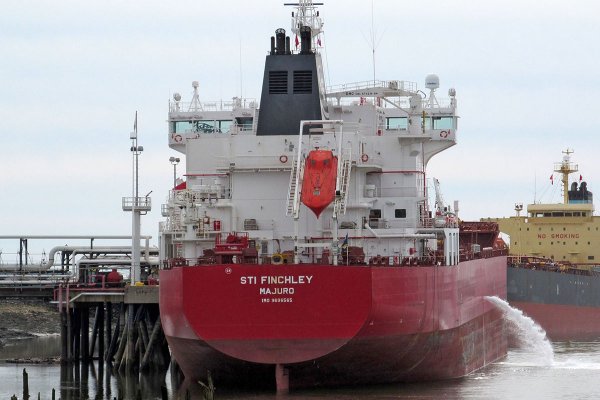Russia uses tankers flying other countries’ flags to sell oil in the Mediterranean Sea, which serves to evade EU sanctions imposed on Moscow after its invasion of Ukraine, Spanish media wrote on Tuesday.
It is not very clear what sanctions Russia will avoid, because, for example, under the next EU sanctions package, Russian oil can be imported into EU countries through EU ports until December. What’s more, unfortunately, there are no (current) sanctions preventing Russia from exporting oil to, for example, India. [red]
However, according to the daily El Faro de Ceuta and La Razon, fuel is sold and refilled in several places in the western and eastern Mediterranean. One of them is the Spanish enclave of Ceuta in North Africa.
According to information from the Spanish media, the procedure carried out at the initiative of Russia, the so-called “ghost sale”, is taking place in international waters.
As defined by “El Faro de Ceuta”, one of the ships selling Russian oil on the high seas is an oil tanker flagged by the Marshall Islands. Finchley STIwho had been in the Ceuta area for several days. Among the ships selling Russian oil, there are also sailing tankers, i.e. under the flags of Malta, the Marshall Islands and Italy.
Let’s make that clear Finchley STI (IMO No. 9696565), a product carrier with a capacity of 38734 tons (this is a relatively small tanker – for comparison, a tanker aframax they usually have 90 to 120 thousand. tons of loading capacity), picked up the cargo at Vysotsk on October 11-13, and on the 25th of the month arrived at the port outside Ceuta. At this time we do not know whether the ship will participate in the STS transhipment operation, moreover it has not happened so far, so we cannot say so. Finchley STI is “one of the ships selling Russian oil on the high seas”. [red]
The daily stated that, apart from Ceuta, “ghost sales” in the Mediterranean had taken place in recent months in the waters around Malta, as well as around the Greek ports of Kalamata and Egypt’s Alexandria.
It must be emphasized that it is not entirely understandable that some press and media agencies emphasize the fact that ships that actually or allegedly participate in the “ghost sale” of Russian oil wear “foreign flags”.
It should be borne in mind that long before the aggression in Ukraine (for many years), most Russian tankers sailed under foreign flags, for various reasons, mainly commercial. What’s more – most of the world’s merchant (cargo) fleet, operating on international voyages, sails under foreign, not national flags.
Finally, it is unknown in relation to which flags will be “foreign”. This may not be about Russia, because, despite the fact that – as we have already mentioned – most Russian tankers have been flying foreign flags for a long time (flying recently, since the aggression in Ukraine in February this year, it has been rare , it is a margin), besides, most of Russia’s oil exports are carried out by foreign tankers, not Russian, and this is not a new situation – this has also been going on for many years. [red]
Marcin Zatyka (pap); PBS (PortalMorski.pl)
Photo: Astor Shipmanagement

“Reader. Future teen idol. Falls down a lot. Amateur communicator. Incurable student.”


![Bogusław Wołoszański: “Achieving nuclear weapons would be the beginning of World War III” [WYWIAD]](https://storage.googleapis.com/bieszczady/rzeszow24/articles/image/877236c0-66fd-457a-9eb4-41792f9077ff)




